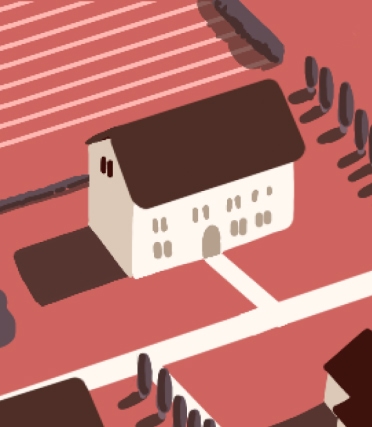

Licensed in:
How long it takes to buy a house: a purchase timeline
The search for a new home may seem like a long and overwhelming journey – maybe so daunting that you find ways to avoid taking the first steps. But the truth is, buying a house doesn’t have to be as long of a process as you may think.

The quick answer: how long does it take to buy a house?
It’s nearly impossible to predict exactly how long it will take to find a home, get an offer accepted and close on a house, especially when there are so many moving parts to the home buying process. It could take anywhere from 6 months to a year depending on the current real estate market and what kind of home you’re looking for.
If you’re planning on buying and selling at the same time, make sure you have a place to stay if you happen to have trouble finding and buying a new home.
What are your goals?
We are committed to helping you reach them. Find out what you are eligible for with just a few clicks.
Home buying timeline: steps and time frame to purchasing a home
Step 1: Save a down payment and prepare finances (a year before)
- Find your credit score and review your credit report.
- Save cash for your down payment and closing costs.
- Start to get a picture of how much house you can afford by experimenting with various mortgage calculators.
- Avoid new debt, which will raise your debt-to-income ratio (DTI).
- Organize your paperwork. You’ll need your W-2s, tax returns, bank statements and pay stubs to get preapproved.
Step 2: Get a mortgage preapproval (a day or two)
Unless you’re able to make an all-cash offer on a home, you’ll need to get approved for a mortgage to finance the purchase.
The first step toward getting a mortgage is applying for preapproval. You’ll need a preapproval before you start seriously shopping for a home. Your lender verifies some of your financial information, including your income, your credit history and current debt to determine how much home you can afford when you apply. That means you’ll need to submit specific documents for the mortgage preapproval, such as pay stubs, bank statements and tax returns.
Don’t confuse prequalification and preapproval. A prequalification is useful when you’re in the early stages of buying a home and trying to figure out a budget, but you’ll need a preapproval when you’re shopping for a new home.
Your lender then issues you a preapproval letter with an official estimate of how much of a loan they’re willing to offer you. Your preapproval letter indicates that you’re serious about buying a home and helps you to strengthen your offer by showing the seller that you have the financial means to afford the home.
What are your goals?
We are committed to helping you reach them. Find out what you are eligible for with just a few clicks.
Step 3: Shop for a home (6 nonths to a year)
- The longest part of the buying process is often the hunt for the right home. If you’re looking for a home in a hot real estate market, expect to spend months – or even a year – finding a home.
- The best way to fast-track your shopping process is to work with a real estate agent. With your preapproval letter in hand, you can begin meeting with real estate agents.
- Agents act as your eyes and ears when you’re house hunting. For this reason, understanding what a real estate agent does and choosing an agent you trust is crucial to your success in the marketplace. You’ll need to trust the ethics, expertise and judgment of your agent when making one of the most important decisions of your life.
While you’re getting your financial history sorted out, you should figure out where you want to live. Consider your lifestyle and do your research. Check out the neighborhoods and the school systems of the area you’re considering. Talk to friends and family about what they like and don’t like about where they live.
Once you decide that you’re ready to buy a house, how much you can afford and where you want to live, there are five main steps to complete before you can call a house your home. Let’s review them.
Home inspection
A home inspection isn’t the same thing as an appraisal. An appraisal gives you a professional opinion of a home's worth. An inspection gives you information about what needs to be repaired or replaced.
Even if you agreed to waive the home inspection contingency to make your offer more attractive, you’re still entitled to a home inspection to help you plan for the expense of any needed repairs. If the house needs repairs that you can’t afford, you can still walk away from the sale. You may lose your earnest money if you choose to do so, but you can’t be compelled to complete the sales transaction.
Most mortgage lenders don’t require home inspections as a condition of getting a loan, but they might if the appraiser identifies areas of concern. Department of Veterans Affairs (VA) loans require pest inspections in some parts of the country.
“Moe Kobeissi and Abdel Ali at Neighborhood Mortgage were extremely professional and efficient throughout the mortgage process. All communications were timely, clear and easy to understand.”
The appraisal
An appraisal is a professional opinion of how much your home is worth. Mortgage companies typically require that you get an appraisal before you can get a loan, although some programs do offer property inspection waivers (PIWs).
Appraisals are common practice, however, because the appraisal ensures that you aren’t paying more money than your home is worth. These examinations are usually more focused than a broad home inspection. For example, if the appraiser notes a potential issue with the foundation, your lender may require a licensed foundation inspection to be completed. The appraiser who visits the home will always be a licensed independent third party who can ensure a fair market assessment.
The bottom line: your home buying timeline can vary
Buying a house is a major undertaking, and it could take you about a year to go from your current home into a new one depending on a variety of factors. The first step in your home buying journey is getting initial approval to show agents and sellers that you’re ready to buy.


